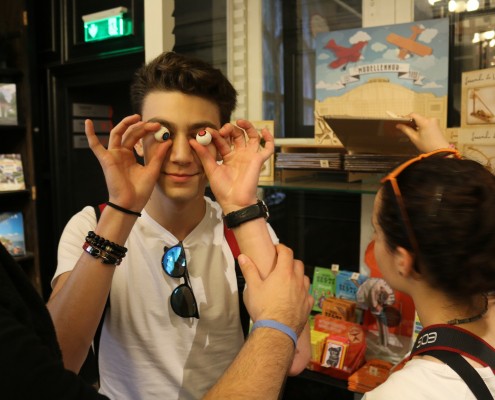Non-Degree / Dates: 12 - 30 January 2026
A Non-Dictionary Russian or Obscene language course focuses on teaching the use and understanding of Russian slang. This type of course is usually not part of formal language instruction. It is intended for individuals who want to familiarize themselves with this aspect of language for various reasons, such as cultural understanding, avoiding offensive situations, or even for entertainment.
The course explores a range of non-standard and often offensive words, phrases, and expressions used in colloquial Russian. This includes profanity, slang, and culturally specific terms that may be inappropriate in formal settings.
Students will learn when and how to use these words and phrases and when it is highly inappropriate to do so. Understanding the social and cultural contexts in which such language is used is essential.
The course may delve into profanity’s cultural and historical aspects in Russian-speaking societies. It can help students gain insight into the use of offensive language as a form of self-expression, humor, or social commentary.
The course includes the following aspects:
- Analysis of obscene language: analysis of obscene words and phrases from the point of view of their origin, history and meaning.
- Context and use: exploring situations in which obscene language may be used and what consequences it may have.
- Replacing swear words: providing alternative ways to express emotions and negative thoughts without using swear words.
- Critical thinking: supporting students to develop the ability to analyze context and select appropriate words and phrases to communicate.
- Discussion of moral aspects: discussion of moral and ethical issues related to the use of obscene language and its impact on society.
- Speaking practice: organizing exercises and role-plays involving swear words to practice and increase confidence in speaking.
You will get new skills and knowledge:
- Cultural understanding: help students understand the role of obscene language in Russian culture and society and its impact on communication.
- “Self-defense” and understanding: provide students with the knowledge and tools to recognize obscene language to avoid unwanted situations.
- Vocabulary expansion: consider obscene words and expressions as part of the richness of the Russian language, helping students better understand their meanings.
- Use in context: teach students how to use swear words and phrases in context and when they may be appropriate.
Why take this course?
Teacher(s)
Lukasz Marek Chwistek is a linguist, Russian language teacher and methodologist, TRFL tester, and sworn translator. An active member of many organizations uniting teachers of Russian as a Foreign Language. He believes that the more positive emotions there are in a lesson, the more effective the learning of the Russian language 🙂
Timetable
The course can be taken as an “after-class” course in addition to other courses.
Schedule:
January 14, 16, 21, 23, 28 and 30 (Wednesdays and Fridays) at 14:15 – 15:45.
Participants
The course is open for all students of Russian as a foreign language from level B2/C1.
Credit points
1 ECTS. Participants should participate in at least 75% of classes to get the certificate and transcript of records.
Course fee
120 EUR
NB! Accommodation, cultural programme and meals are not included in the price.


